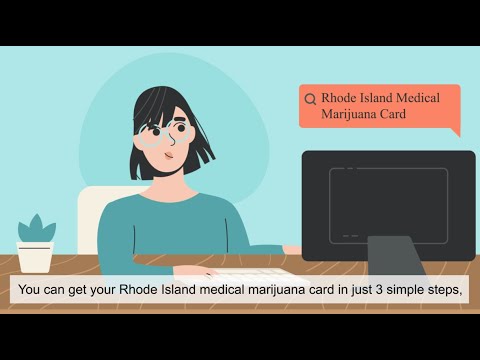Is It Possible for a Police Officer to Obtain a Medical Marijuana Card in Rhode Island?
Understanding the Current Laws and Regulations
When it comes to the use of medical marijuana, laws and regulations can vary significantly from one state to another. In Rhode Island, the use of medical marijuana is legal under certain conditions. However, the question arises whether police officers, who are responsible for enforcing the law, can obtain a medical marijuana card themselves.
The Legal Status of Medical Marijuana in Rhode Island
In 2006, Rhode Island became the 11th state in the United States to legalize the use of medical marijuana. The state passed the Edward O. Hawkins and Thomas C. Slater Medical Marijuana Act to allow patients with debilitating medical conditions to use cannabis for therapeutic purposes. However, this does not mean that all individuals, including police officers, are automatically eligible for a medical marijuana card.
Eligibility Criteria for Obtaining a Medical Marijuana Card
To qualify for a medical marijuana card in Rhode Island, individuals must meet certain eligibility criteria. A patient must have a debilitating medical condition such as cancer, glaucoma, HIV/AIDS, or chronic or debilitating diseases that cause severe pain, nausea, seizures, or muscle spasms. They must also receive a written recommendation from a licensed physician who is registered with the Rhode Island Department of Health.
Exemptions and Considerations for Police Officers
While Rhode Island law allows police officers to apply for a medical marijuana card, there are specific considerations and exemptions in place. Police officers may be subject to additional scrutiny and restrictions due to their role in law enforcement. Agencies often have policies in place that address the use of medical marijuana by officers and may require additional documentation or approval.
Balancing the Duties of Law Enforcement and Personal Health Needs
The use of medical marijuana by police officers raises questions about the balance between enforcing the law and personal health needs. Officers must ensure that their medical use of marijuana does not impair their ability to carry out their duties effectively and responsibly. Striking the right balance between personal health needs and professional obligations is crucial to maintain public safety and uphold the law.
The Process of Applying for a Medical Marijuana Card
To apply for a medical marijuana card in Rhode Island, police officers must follow the same process as any other eligible applicant. They must complete an application form provided by the Rhode Island Department of Health and submit it along with the required documentation and fees. The application is then reviewed by the department, and if approved, a medical marijuana card is issued.
Necessary Documentation and Requirements for Police Officers
In addition to the standard requirements, police officers may need to provide additional documentation to support their application for a medical marijuana card. This could include a letter from their commanding officer, outlining the reasons for seeking medical marijuana use, or any other relevant information. It is important for police officers to be transparent and provide all necessary documentation to ensure a smooth application process.
Confidentiality and Privacy Concerns for Law Enforcement
Confidentiality and privacy concerns are paramount for law enforcement officers who choose to use medical marijuana. They must ensure that their medical information remains confidential and is not disclosed inappropriately. Departments and agencies must have policies in place to protect the privacy of officers who are registered medical marijuana users and provide guidance on handling and storing this sensitive information.
Potential Implications for Job Performance and Professionalism
Police officers using medical marijuana must consider the potential implications for their job performance and professionalism. While the use of medical marijuana may be legal under state law, it remains illegal under federal law. Officers must be aware of the potential conflicts and legal consequences that may arise from their medical marijuana use, both on and off duty.
Addressing Concerns and Potential Conflicts of Interest
The use of medical marijuana by police officers can raise concerns and potential conflicts of interest. Officers must maintain objectivity and impartiality in enforcing the law, even when it comes to individuals who may possess or use marijuana legally. Policies and guidelines should be in place to address these concerns and ensure that officers uphold the law without bias or favoritism.
Seeking Guidance and Support from Legal and Medical Professionals
Police officers who are considering applying for a medical marijuana card should seek guidance and support from legal and medical professionals. Consulting with an attorney who specializes in marijuana law can help officers understand their rights and responsibilities. Additionally, seeking advice from medical professionals can provide insight into the potential benefits and risks of using medical marijuana while carrying out law enforcement duties.
In conclusion, while it is possible for police officers to obtain a medical marijuana card in Rhode Island, there are specific considerations, exemptions, and potential implications that need to be taken into account. Striking a balance between personal health needs and professional obligations is crucial, and seeking guidance from legal and medical professionals is essential for officers navigating this complex issue. With proper understanding and support, police officers can ensure that their use of medical marijuana aligns with the law and their duties as law enforcement professionals.





